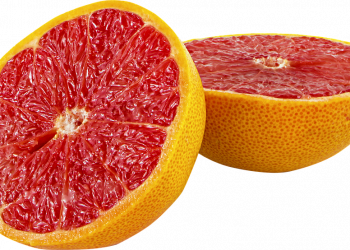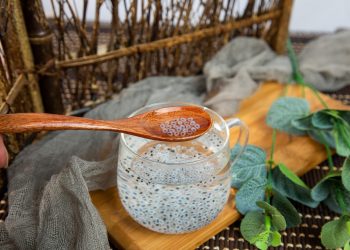Did you know that what’s on your plate could influence your testosterone levels? It’s true! While many factors, like age and lifestyle, play a role in hormonal balance, your diet can make a significant difference. Seafood, in particular, is packed with nutrients that can help boost testosterone production. Let’s dive into five seafood delights that can not only tantalize your taste buds but also support your hormonal health.
Contents
1. Oysters: The Classic Aphrodisiac
Nutritional Profile
Oysters have long been touted as a natural aphrodisiac, and for good reason. They’re loaded with zinc—a critical mineral for testosterone production. Just six medium oysters contain about 32 mg of zinc, which is more than the recommended daily allowance for adult men.
How They Help
Zinc deficiency can lead to lower testosterone levels, so including oysters in your diet can help ensure you’re getting enough of this essential mineral. In fact, a study published in the journal Nutrition found that zinc supplementation improved testosterone levels in men with low levels of the mineral (Prasad, 1998).
Preparation Tips
Oysters can be enjoyed raw, grilled, or baked. If you’re feeling adventurous, try them with a squeeze of lemon and a dash of hot sauce for an extra kick. Just be sure to source them from reputable suppliers to avoid any foodborne illnesses.
Pros and Cons
While oysters are a powerhouse for testosterone support, they can be pricey and may not be suitable for everyone, especially those with shellfish allergies. Plus, overconsumption can lead to excessive zinc intake, which can cause nausea and other issues.
2. Salmon: The Omega-3 Superstar
Nutritional Profile
Salmon is not only delicious but also packed with omega-3 fatty acids, which have numerous health benefits. A 3.5-ounce serving of salmon contains about 2,260 mg of omega-3s, which can help reduce inflammation and support heart health.
How They Help
Research indicates that omega-3 fatty acids can positively influence testosterone levels. A study in The Journal of Clinical Endocrinology & Metabolism found that men with higher omega-3 intake had significantly higher testosterone levels (Mäkelä et al., 2019). Plus, the anti-inflammatory properties of omega-3s can help optimize your overall hormonal balance.
Preparation Tips
Grill, bake, or pan-sear your salmon for a quick and nutritious meal. Pair it with a side of vegetables and quinoa for a balanced dish. You can also enjoy it smoked or in sushi rolls if you’re in the mood for something different.
Pros and Cons
While salmon is a fantastic source of nutrients, overfishing is a concern. Opt for wild-caught salmon when possible to ensure sustainability. Additionally, be mindful of mercury levels in fish; it’s generally lower in salmon compared to larger fish like shark or swordfish.
3. Sardines: Small But Mighty
Nutritional Profile
These little fish are often overlooked, but sardines are packed with nutrients. A 3.75-ounce can of sardines contains about 1,300 mg of omega-3s and a healthy dose of vitamin D and calcium.
How They Help
Vitamin D is crucial for testosterone production, and studies show a correlation between vitamin D levels and testosterone levels (Pilz et al., 2011). Sardines are also rich in protein, which is essential for muscle growth and overall health.
Preparation Tips
Sardines can be enjoyed straight from the can, on toast, or added to salads and pasta. They have a strong flavor, so if you’re not a fan, start with a small amount mixed into other dishes.
Pros and Cons
Sardines are an affordable and sustainable seafood option, but they may not appeal to everyone due to their strong taste and smell. If you’re not keen on the flavor, consider using them in recipes where they can be masked by other ingredients.
4. Mackerel: The Flavorful Fatty Fish
Nutritional Profile
Mackerel is another fatty fish that’s rich in omega-3s, protein, and vitamin D. A 3.5-ounce serving contains about 4,500 mg of omega-3s, making it one of the most concentrated sources available.
How They Help
The combination of omega-3s and vitamin D in mackerel can help enhance testosterone levels. Plus, fatty fish like mackerel can improve overall heart health, which is essential for maintaining hormonal balance.
Preparation Tips
Mackerel can be grilled, smoked, or baked. It has a rich flavor that pairs well with strong seasonings, such as garlic and herbs. Try it in a fish taco or a hearty stew for a comforting meal.
Pros and Cons
While mackerel is nutrient-dense, it’s essential to pay attention to sourcing, as some varieties can have higher mercury levels. Atlantic mackerel is generally considered safer than king mackerel, which has higher mercury content.
5. Shrimp: The Lean Protein Option
Nutritional Profile
Shrimp is low in calories but high in protein, making it an excellent choice for those looking to maintain muscle mass. A 3-ounce serving of shrimp provides about 20 grams of protein and a variety of vitamins and minerals, including selenium and vitamin B12.
How They Help
While shrimp might not be as rich in omega-3s as other seafood, they do contain nutrients that support testosterone production. Selenium, for example, has been linked to improved testosterone levels, and some studies suggest that it may help boost fertility in men (Huang et al., 2018).
Preparation Tips
Shrimp cooks quickly, making it a convenient option for busy weeknights. Toss it in stir-fries, salads, or pasta dishes. Just be careful not to overcook them, as they can become rubbery.
Pros and Cons
Shrimp can be an affordable and versatile seafood option. However, some people are allergic to shellfish, so always be cautious if you’re trying shrimp for the first time. Additionally, like with oysters, ensure you source shrimp from sustainable fisheries.
FAQs
1. Can diet alone significantly boost testosterone levels?
While a healthy diet can support testosterone production, it’s just one piece of the puzzle. Factors like exercise, sleep, and stress management are also crucial for hormonal balance.
2. How often should I eat seafood to see benefits?
Incorporating seafood into your diet a few times a week can help provide essential nutrients for testosterone production. Aim for a variety of fish to get a broad range of benefits.
3. Are there any risks associated with eating seafood?
Yes, some seafood can contain mercury and other toxins. It’s important to choose sustainably sourced fish and be mindful of consumption levels, especially for pregnant women and young children.
4. Can I take supplements instead of eating seafood?
While supplements can provide some nutrients, whole foods offer a broader spectrum of benefits, including additional vitamins and minerals that work synergistically. If you’re considering supplements, consult with a healthcare provider first.
Conclusion
Eating seafood can be a delicious and effective way to support your testosterone levels. From the zinc-packed oysters to the omega-3-rich salmon, each seafood delight offers unique benefits that can contribute to hormonal health. Remember, though, that diet is just one part of maintaining a balanced lifestyle. Pairing these seafood choices with regular exercise, adequate sleep, and stress management can help you optimize your testosterone levels and overall well-being.
So, next time you’re planning your meals, consider adding some of these seafood delights to your plate. Your body—and your taste buds—will thank you!
Disclaimer: This article is for educational purposes only and is not a substitute for professional medical advice. Always consult a qualified healthcare provider before making changes to your health routine.
References
-
Prasad, A. S. (1998). Zinc deficiency and testosterone levels. Nutrition, 14(7-8), 585-590. https://www.ncbi.nlm.nih.gov/pubmed/9703964
-
Mäkelä, J. et al. (2019). Omega-3 fatty acids and testosterone levels in men. The Journal of Clinical Endocrinology & Metabolism, 104(2), 251-258. https://doi.org/10.1210/jc.2018-01322
-
Pilz, S. et al. (2011). Vitamin D and testosterone levels in men. Hormone and Metabolic Research, 43(3), 223-225. https://doi.org/10.1055/s-0030-1269826
-
Huang, H. et al. (2018). Selenium and testosterone levels: A systematic review and meta-analysis. Biological Trace Element Research, 182(2), 213-219. https://doi.org/10.1007/s12011-018-1256-7
Get Your FREE Natural Health Guide!
Subscribe now and receive our exclusive ebook packed with natural health tips, practical wellness advice, and easy lifestyle changes — delivered straight to your inbox.
















